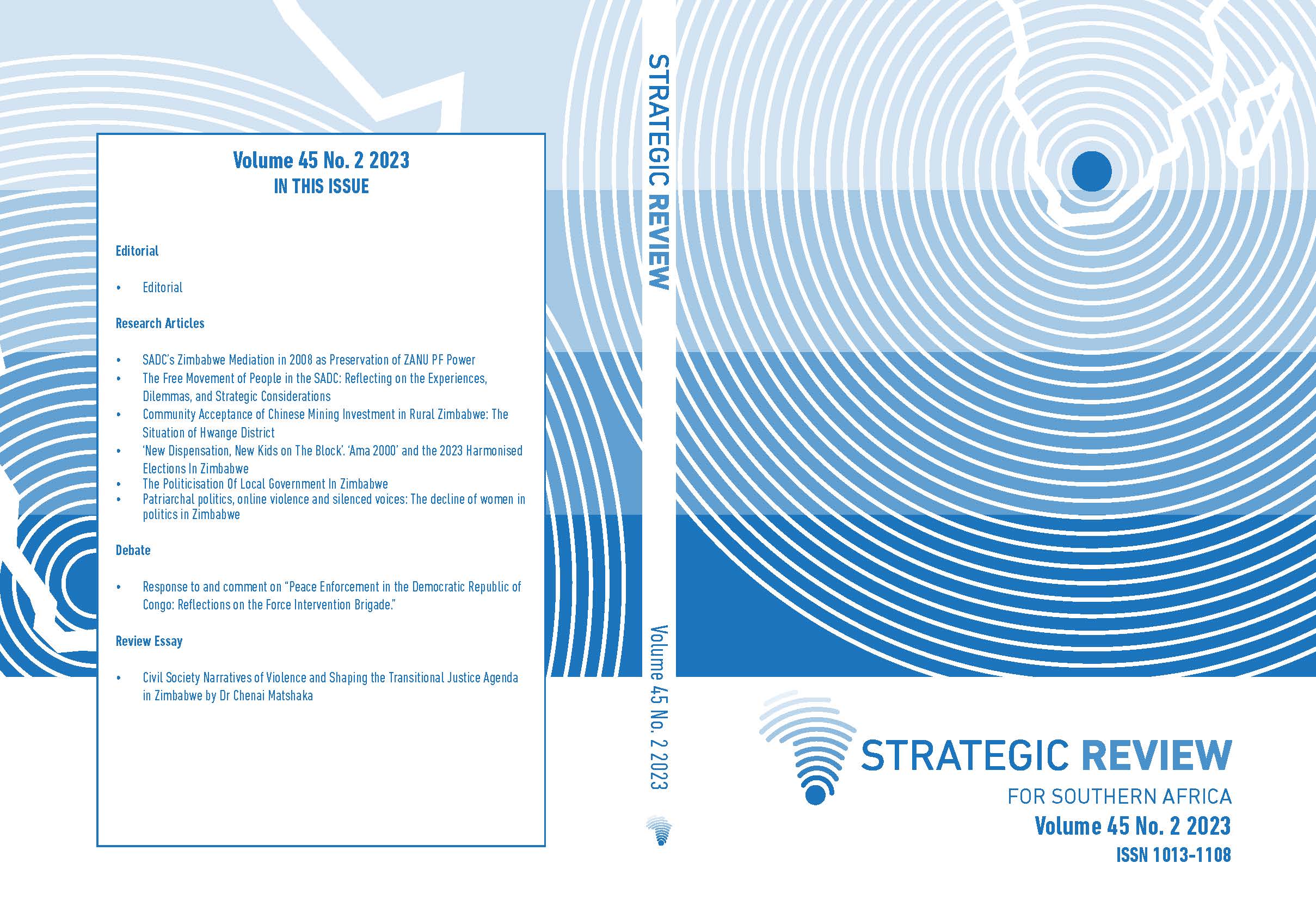Community Acceptance of Chinese Mining Investment in Rural Zimbabwe: The Situation of Hwange District
DOI:
https://doi.org/10.35293/srsa.v45i2.4793Keywords:
Community, mining, investment, people, profit, planet, sustainabilityAbstract
An empirical investigation on the acceptance of Chinese mining activities in rural Zimbabwe was done for this article. Its two main goals were to: (1) assess public opinion of Chinese mining operations; and (2) present a workable investment model that takes into account the main locals' complaints. Additionally, it touched on two related issues of concern: (i) what causes host community disputes with foreign mining companies in rural Zimbabwe, and (ii) what investment model may be used to settle host community disputes between investors and host communities?. It then assessed Chinese mining investments against the 3Ps of the Triple Bottom Line theory (TBL). Created by John Elkington in 1994, TBL recommends a balance between people, profitability and the planet (environmental conservation) in business operations. Based on the study's somewhat negative findings, the article created the PESE investment model (short-cut for people, environment, social and economy) which it is presenting as an ideal framework that may have broader application for sustainable investment in Zimbabwe's mining industry.


